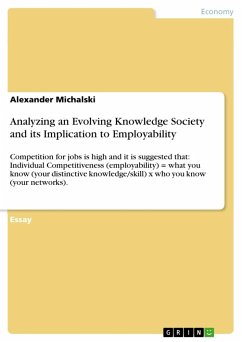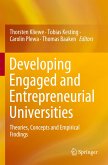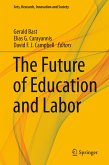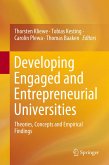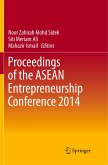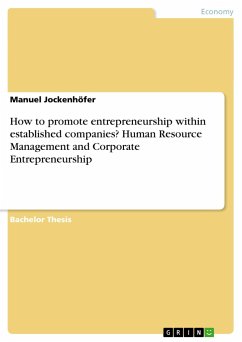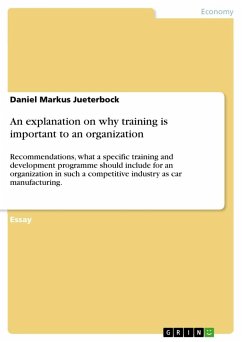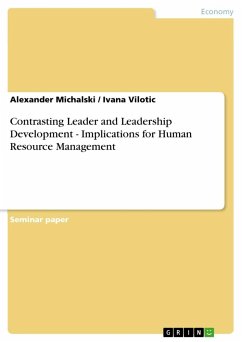Essay from the year 2011 in the subject Leadership and Human Resources - Miscellaneous, grade: 2,0, University of Southampton (School of Management), course: 6178 Contemporary Issues in HRM, language: English, abstract: The major driving force for an evolving knowledge society is a globally increased competition for employment. Industrialized economies are currently transforming to knowledge based societies, since their source of competitive advantage is not the availability of a low-skilled workforce anymore, for instance in comparison to the BRIC countries. If an economy wants to be competitive in the future sustainably, a proper educated workforce is imperative (Harvey and Knight, 2003). Moreover, Itzel concluded that the development of employability and a knowledge based society, stressing interpersonal issues and citizenship acknowledgement, is of outstanding importance (2006). In that regards the Lisbon Strategy of the European Council aims for enhancing a superior and flexible knowledge driven economy in the European Union (Alvarez, Meneghini and Richter, 2006). The evolving knowledge society and the related transformation process effects the stakeholders involved differently; especially the impact for employees and employers are distinctive. So, corporations constantly undertake changes by emphasizing increasingly project and network organisational structures in order to ensure their competitiveness in global markets (Carnall, 2007). Further, companies put more emphasis on tacit knowledge, meaning employee's abilities and experiences gained throughout their work live, which cannot easily be substituted by explicit or codified knowledge (Nordström and Ridderstråle, 2007). Employees, thus, may not longer expect a lifetime employment with stable job security and straight career paths but rather decreased job security (DeFillippi and Arthur, 1994); consequently, employees are under pressure to utilize their employability by equipping themselves with distinctive knowledge and skills and being part of social networks.

